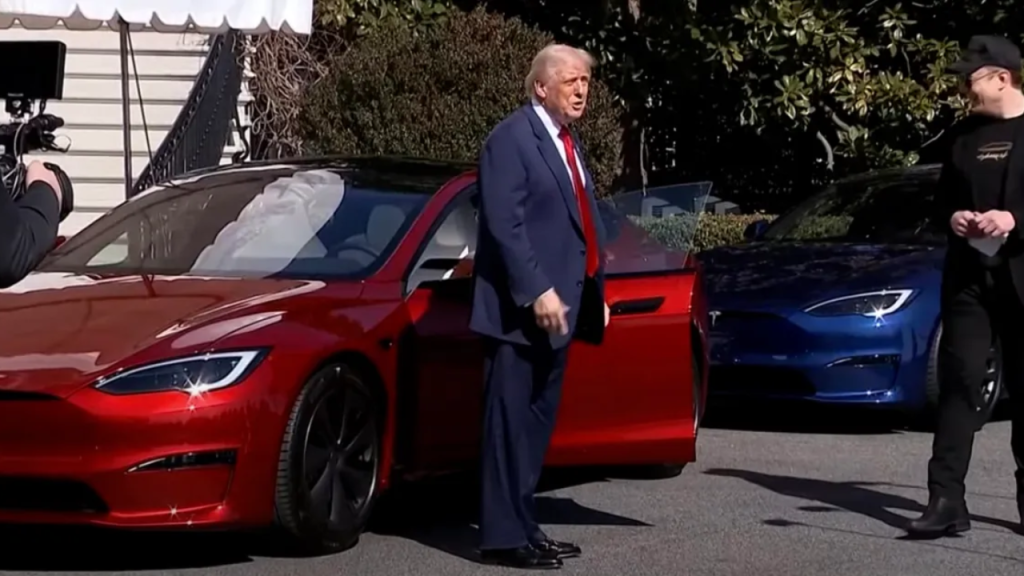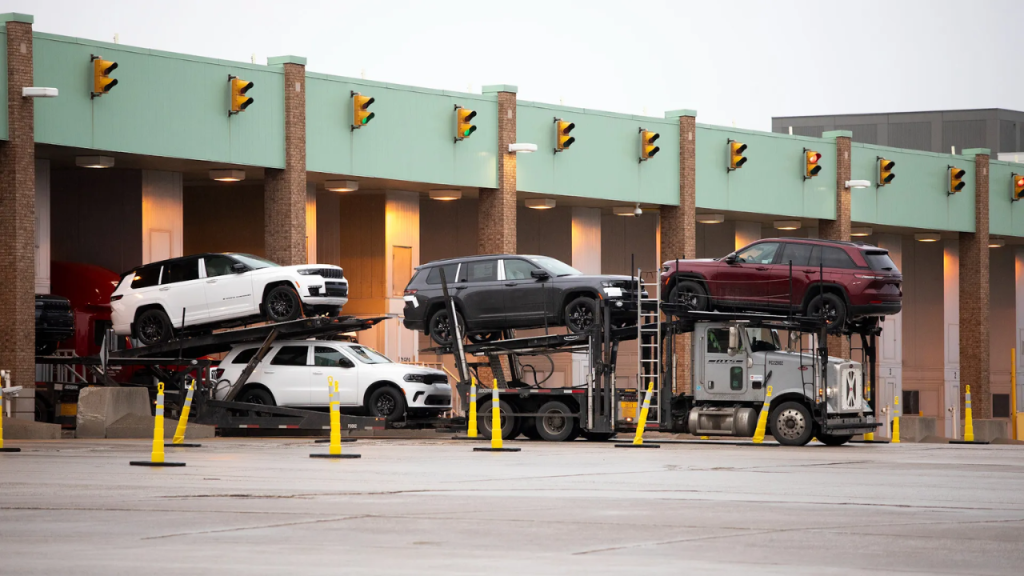
With a new 25% import tariff on foreign-made cars now in effect, car buyers in the U.S. are facing an unexpected shock — prices are jumping by as much as $10,000 (over ₹8 lakh) overnight. Dealerships are reporting a surge in sales as people rush to buy before prices climb even higher. But many are left wondering — should you buy now, or wait it out?
Buyers Rush as Prices Climb
At Walnut Creek Toyota in California, 70 cars were sold in one weekend just before the tariff deadline on April 3. The dealership ran ads warning, “The tariff clock is ticking.”
“Every dealership in the Bay Area is seeing a rise in demand,” said Irina Ellis, the general manager, in a statement to ABC7 News.
And it’s not just about new cars.
Additional tariffs on imported auto parts are expected by May 3, which means even local vehicles will soon carry extra costs. Buyers who waited may already be too late.
What Do the New Tariffs Mean for Car Prices?
According to experts, the 25% import duty will lead to a sharp jump in prices, not only for imported vehicles, but also for those made in the U.S.
Erin Keating, executive analyst at Cox Automotive, explained:
“We’re expecting a 15–20% price increase on imported cars. Even U.S.-made vehicles could see a 5% hike because of higher demand and rising costs of parts.”
That means:
- Imported vehicles may cost $6,000 more (₹5 lakh)
- U.S.-made vehicles may cost $3,600 more (₹3 lakh)
- An extra $300–$500 (₹25,000–₹40,000) could be added due to steel and aluminum tariffs
Even cars already in transit were hit by sudden price hikes. A reporter from ABC7 said her order cost $5,000–$10,000 more once it arrived at the port.
Trump’s Justification: Jobs and Trade Balance
Former President Donald Trump has defended the tariffs as part of his strategy to bring auto manufacturing back to the U.S.
“If you make your car in the United States, you’re going to make a lot of money,” Trump said in an NBC interview. “If not, you’ll probably have to move here — because there won’t be any tariffs if you manufacture in the U.S.”
While some foreign factories are closing in Mexico and Canada, U.S. workers tied to those supply chains are also losing jobs. And soon, U.S.-made cars could become more expensive too — because the parts they rely on are often imported and will be taxed heavily by May.
Erin Keating warns that these price hikes might become the new normal.
“Once you let the genie out of the bottle, it’s hard to put it back,” she said.
Should You Buy a Car Now or Wait?

If you’re planning to buy a new car, here are a few practical options to help you deal with the price rise:
1. Look at Used Cars
Used car prices are also expected to rise, but not as drastically as new cars. Vehicles that were assembled before the tariff hit or are already in stock may offer some savings. Certified pre-owned models might give you better value right now.
2. Wait if You Can
Prices are high because of panic buying. If you can delay your purchase for a few months, the market may stabilize, or political pressure may change the tariff policy again. It’s a gamble, but patience might pay off.
3. Repair Instead of Replacing
Got an old car? Consider fixing it up. Even if it needs a major repair, the total cost might still be lower than buying a new car with a ₹5-8 lakh markup. A good mechanic might save you lakhs.
4. Compare Loan Offers
Car loans are expensive these days, but some banks, credit unions, or even dealerships might offer special deals to attract customers. A better loan rate can ease the impact of the price jump. Don’t settle for the first quote — shop around.
5. Cut Costs Elsewhere
If you’re buying a car despite the high prices, find ways to save in other areas:
- Switch to a cheaper car insurance plan
- Cancel unused subscriptions
- Refinance existing loans to free up the monthly budget
A bit of budget planning can make a big difference when costs are rising.
Final Thoughts: A Costly Time for Car Buyers
Trump’s new car tariffs have rattled the auto industry and everyday buyers alike. While the aim is to bring manufacturing back to American soil, the short-term impact is hitting consumers the hardest. If you’re in the market for a new vehicle, your best move may depend on how urgently you need it — and how much you’re willing to pay.
For many, it might be wise to wait and see. But for others, locking in today’s prices could be smarter than gambling on tomorrow.
